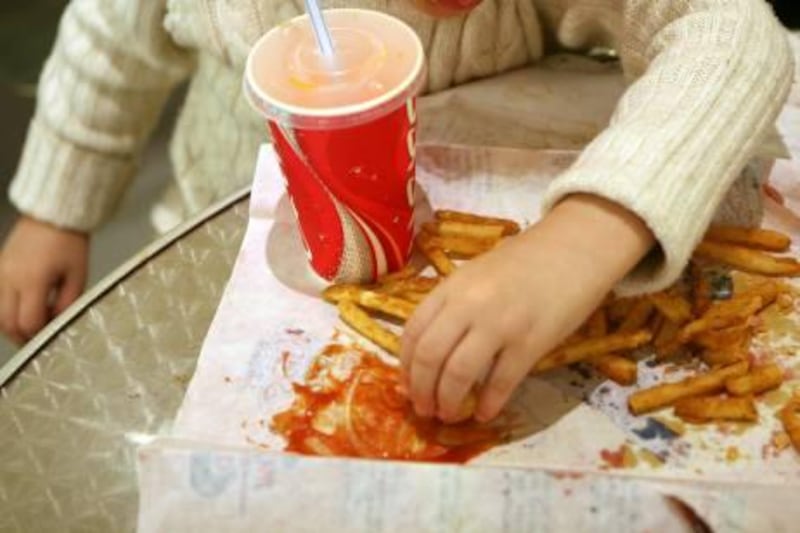ABU DHABI // People should eat less fried and processed food to cut cancer risks, medical and food experts say.
"Anything that is packaged and has a lot of ingredients you don't understand is likely to be harmful," said Caroline Kanaan, a registered clinical dietitian at the Advanced Nutrition Centre in Dubai Healthcare City.
Concerns were recently raised after reports that an Indian brand of chilli powder had been contaminated with Sudan I, a red dye that has been linked to cancer.
A study by the World Cancer Research Fund and the American Institute for Cancer Research in 2007 showed processed meats including sausages and hamburgers could increase the risk of cancer.
The problem is the addition of nitrites and nitrates in the smoking, curing or salting process. These preservatives keep meat smelling and looking fresh.
When heated to high temperatures they form nitrosamines, which can trigger cancer of the mouth, bladder, throat, stomach and brain.
The Cancer Prevention Coalition, a US-based association that aims to reduce cancer worldwide, recommended children should not eat more than 12 hot dogs containing nitrites a month.
The study also said a healthy eating strategy was vital in protecting against diseases.
"When combined with not smoking and regular exercise, this kind of healthy diet can reduce some cancers by 70 per cent," it read. That means more than 3 million cases of cancer a year.
Red meat has been linked to several forms of cancer and the advice is not to eat more than 500 grams of it a week.
"There are some cancer types with powerful dietary linkages, such as colorectal cancer," said Dr Arash Rashidi, the head of the research department at the National Nutrition and Food Technology Research Institute in Iran.
"Other cancer types that are not very related to diet include leukaemia or hormone-related cancers such as prostate, breast and ovarian."
Processed foods deemed problematic include stock cubes.
"People in the UAE depend on processed food and that has enough additives that are bad for your health," said Ms Kanaan.
It can be hard to know which foods contain potentially carcinogenic ingredients, as they are not always itemised on the labelling.
"There is a definite lack of information for people," said Ms Kanaan.
Hydrogenated oils - commonly found in margarine, packaged potato chips, doughnuts and biscuits - are considered potentially harmful.
Acrylamide, a chemical found in chips and foods heated above 120°C, falls into the same category.
The study claims frying, grilling and chargrilling generate temperatures of up to 400°C, which can create high levels of potentially carcinogenic compounds.
"Sometimes it's not because of the food but the preparation methods, so the chances of cancer increases when you deep-fry because of the different compounds inside the oil," said Dr Rashidi.
According to the study, eating burned or charred foods can often cause problems.
"Prolonged frying, barbecuing, smoking and salting are four carcinogenic food preparation methods, regardless of the food itself," added Dr Rashidi.
But other studies have questioned the connection between acrylamide and cancer in humans, and a consensus on the matter has yet to be reached.
In 2008, 7.6 million people worldwide died from cancer and the World Health Organisation predicts that number will jump to 12 million by 2030.
"It's increasing because of the current way of life," said Ms Kanaan. "Less people are taking the time to cook from fresh food so by default, they're going to have a lot more processed food."






